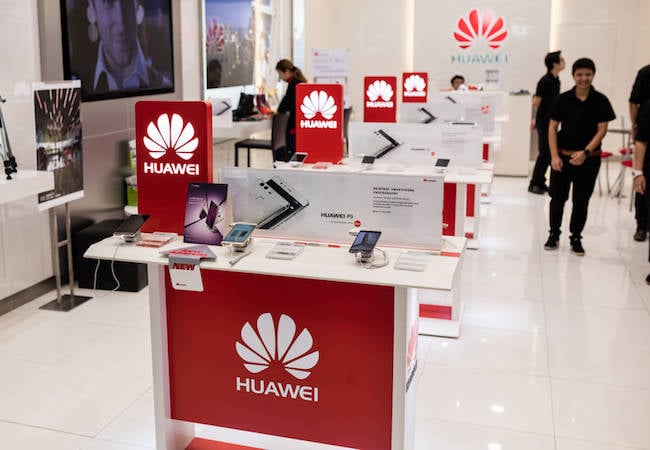Huawei plans to expand its native HarmonyOS smartphone platform worldwide, despite coming under US-led sanctions that have deprived it of access to key technologies.
The Chinese tech megacorp released its own phone platform in 2019, the same year that US sanctions blocked Huawei from having further access to Google’s Android software to power its devices.
More recently, the company saw its Mate 60 Pro smartphone become the top selling device in China’s huge consumer market, displacing rivals such as Apple’s iPhone. It also has a newer device, the Pura 70, that could pose a bigger threat to Apple sales in the country.
Now Huawei has set its sights on international expansion and intends to spend 2024 building up the native HarmonyOS app ecosystem, including bringing the most popular smartphone apps to its platform.
“We will work hard to build up the HarmonyOS app ecosystem in the China market first, then, from country to country, we will start gradually pushing it out to other parts of the world,” Huawei’s rotating chairman Eric Xu told attendees at its 21st Analyst Summit in Shenzhen last week.
Part of this process will involve porting apps to HarmonyOS and encouraging other app developers to code for the platform.
“In the China market, Huawei smartphone users spend 99 percent of their time on about 5,000 apps. So we decided to spend 2024 porting these apps over to HarmonyOS first in our drive to truly unify the OS and the app ecosystem. We are also encouraging other apps to be ported over to HarmonyOS,” Xu said.
According to Huawei’s rotating chairman, more than 4,000 of those apps are already in the process of being transferred, and the company is “communicating with developers” on the 1,000 or so apps that remain.
“This is a massive undertaking, but we have broad support in the industry and from many app developers,” he claimed.
“Once we have these first 5,000 Android apps – and thousands of other apps – up and running on HarmonyOS, we will have a real HarmonyOS: a third mobile operating system for the world,” Xu said. That number could reach up to 1 million apps in the future, he claimed.
According to Counterpoint Research, HarmonyOS has seen high growth thanks to the introduction of 5G smartphones powered by it, such as the Mate 60 Pro. The platform accounted for 4 percent of global market share in the fourth quarter of 2023, and exceeded 16 percent market share in China, which Counterpoint said makes this the third largest mobile operating system by handset sales, behind Android and iOS.
Whether there will be much of a market for HarmonyOS devices outside of China is open to debate: repeated sanctions and negative publicity from the US and governments in Europe has left the brand with a hill to climb in both the world of business and consumer land.
In related news, at the weekend US Secretary of Commerce Gina Raimondo chose to downplay Huawei’s achievements in delivering 5G smartphone products such as the Mate 60 Pro in spite of US sanctions against the company. The device is powered by a 7nm Arm processor developed in-house by Huawei and manufactured by Chinese chipmaker SMIC.
Speaking on the CBS network’s 60 Minutes program, Raimondo dismissed Huawei’s claims of a technology breakthrough and said the gap in capabilities between it and US companies showed that the White House’s export controls on China were working.
This may have something to do with launch of the Mate 60 Pro coinciding with Raimondo’s visit to China last year, which led to her being mocked on social media. ®
“It’s years behind what we have in the United States,” Raimondo said in the interview at the weekend. “We have the most sophisticated semiconductors in the world. China doesn’t. We’ve out-innovated China.”
How long the US can continue to stay ahead of China when Beijing is pumping funds into the country’s semiconductor industries also remains to be seen. Earlier this month, reports indicated that Huawei is set to develop its own chipmaking equipment following restrictions on the sale of advanced lithography kit to China from the likes of ASML. ®

